New Delhi, Delhi, 18th of October, 2024 : Union Minister for External Affairs, Dr. S. Jaishankar inaugurated the second edition of the art exhibition “Silent Conversation: From Margins to the Centre” in New Delhi on 17 October, 2024. The four-day exhibition has been organized by the National Tiger Conservation Authority in collaboration with the Sankala Foundation, the National Human Rights Commission and the International Big Cat Alliance .
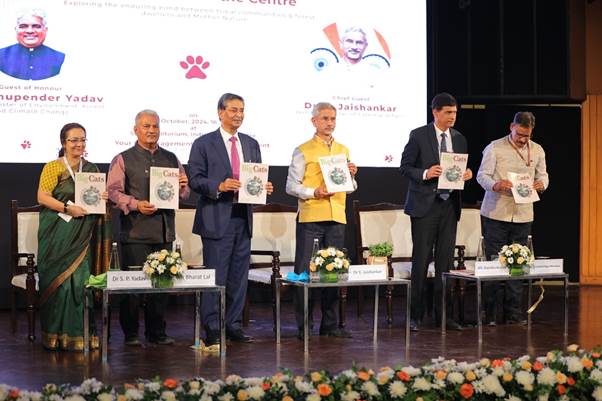
While inaugurating the exhibition, Dr. S Jaishankar emphasized that India’s development journey is deeply connected with environmental conservation. He reaffirmed the government’s commitment to the welfare of Scheduled Tribes through various initiatives, highlighting that the Antyodaya scheme is rooted in the principle of uplifting marginalized communities and ensuring that no one is left behind.
Union Minister Dr. Jaishankar said India had achieved remarkable progress in environmental conservation under the leadership of the Prime Minister, Narendra Modi. He highlighted that the 2022 amendments to the Wildlife Protection Act aim to balance environmental conservation with development needs. He credited the success of the National Tiger Conservation Authority to tribal communities and forest dwellers, whose guardianship has helped forests thrive and who actively combat poaching. He emphasized that policies are most effective when embraced by all citizens, referring to the concept of Janbhagidari
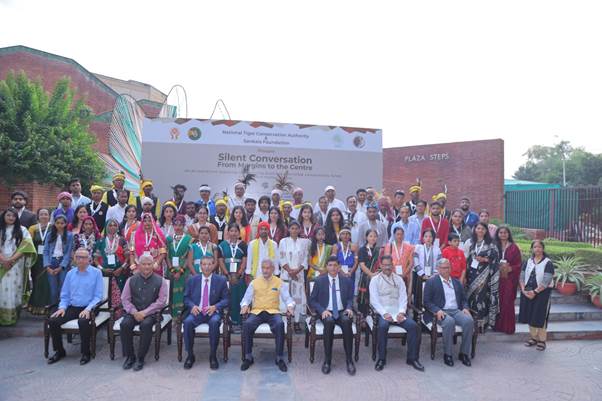
Union Minister for Environment, Forests, and Climate Change, Shri Bhupendra Yadav, emphasized in the video message, that the spirit of coexistence reflects how communities live in harmony with, protect, and respect nature. He praised this approach, especially as the world faces critical challenges such as climate change, biodiversity loss, and soil desertification.
On the occasion, a book titled “Hidden Treasures: India’s Heritage in Tiger Reserves” and a magazine called “Big Cats” were also released.
A cultural program was also organized in the evening, that was attended by Dr. Gajendra Singh Shekhawat, Union Minister for Culture and Tourism.
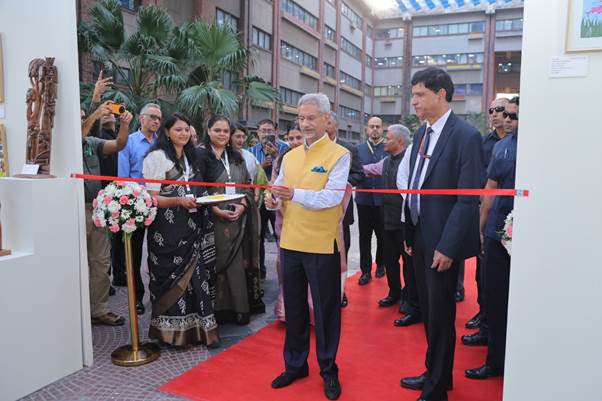
Background
The exhibition aims to recognize the conservation ethos of tribal communities and highlight the symbiotic relationship between these communities and the environment. It seeks to inspire future generations to appreciate this connection and provides tribal artists an opportunity to engage with visitors.
The exhibition features over 200 paintings and 100 art pieces from 22 tiger reserves across India. Tribal art forms such as Gond, Warli, Pata Chitra, Bhil, and Sohrai are showcased and available for sale, with proceeds directly benefiting the artisans. All artworks are crafted using sustainable materials, reflecting the eco-friendly lifestyle of indigenous communities.
Of the 49 participating artists, 10 hail from tiger reserves in Madhya Pradesh, with others from Maharashtra, Chhattisgarh, Odisha, Telangana, Rajasthan, Arunachal Pradesh, Jharkhand, and Mizoram.
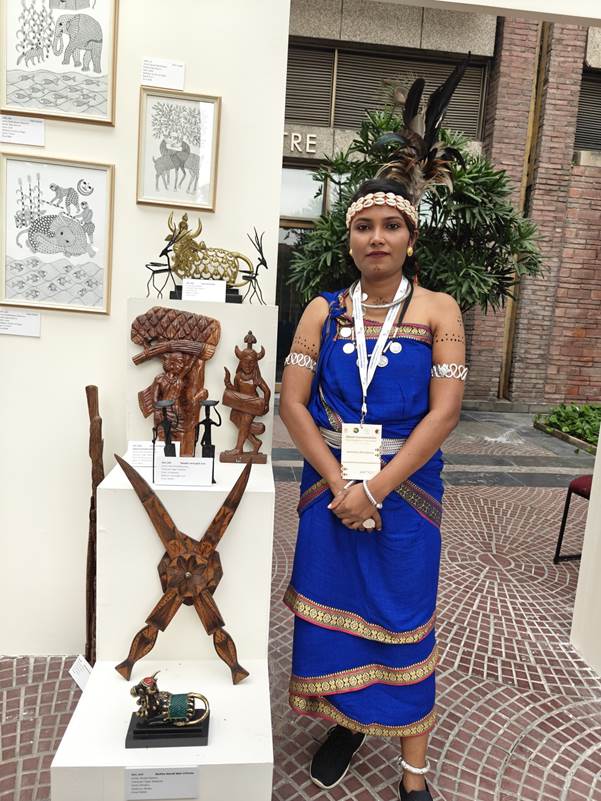
According to the 2011 Census, over 1,70,000 villages in India are located near forested areas, and the India State of Forest Report 2021 indicates that more than 300 million people rely on forests for their livelihoods. On the tiger conservation front, India is home to 75% of the global tiger population, with an estimated 3,682 big cats in 55 tiger reserves as of 2023.
Shri Jitendra Kumar, Director General (Forests) and Special Secretary, Dr Gobind Sagar Bhardwaj, Member Secretary, NTCA and Shri Bharat Lal, Member Secretary, NHRC and senior officers of the ministry were present.
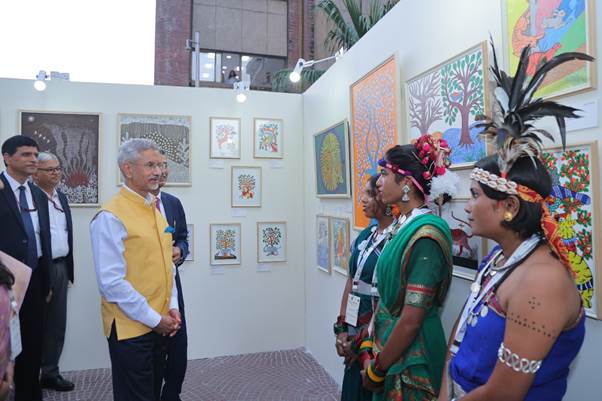










More Stories
55th International Film Festival Of India Opens With The Australian Film “Better Man”.
Turkish Airlines Revamps Its Amenity Kit Concept.
Thums Up Unleashes “Thunder Hai Main” Campaign Featuring Superstar Allu Arjun.